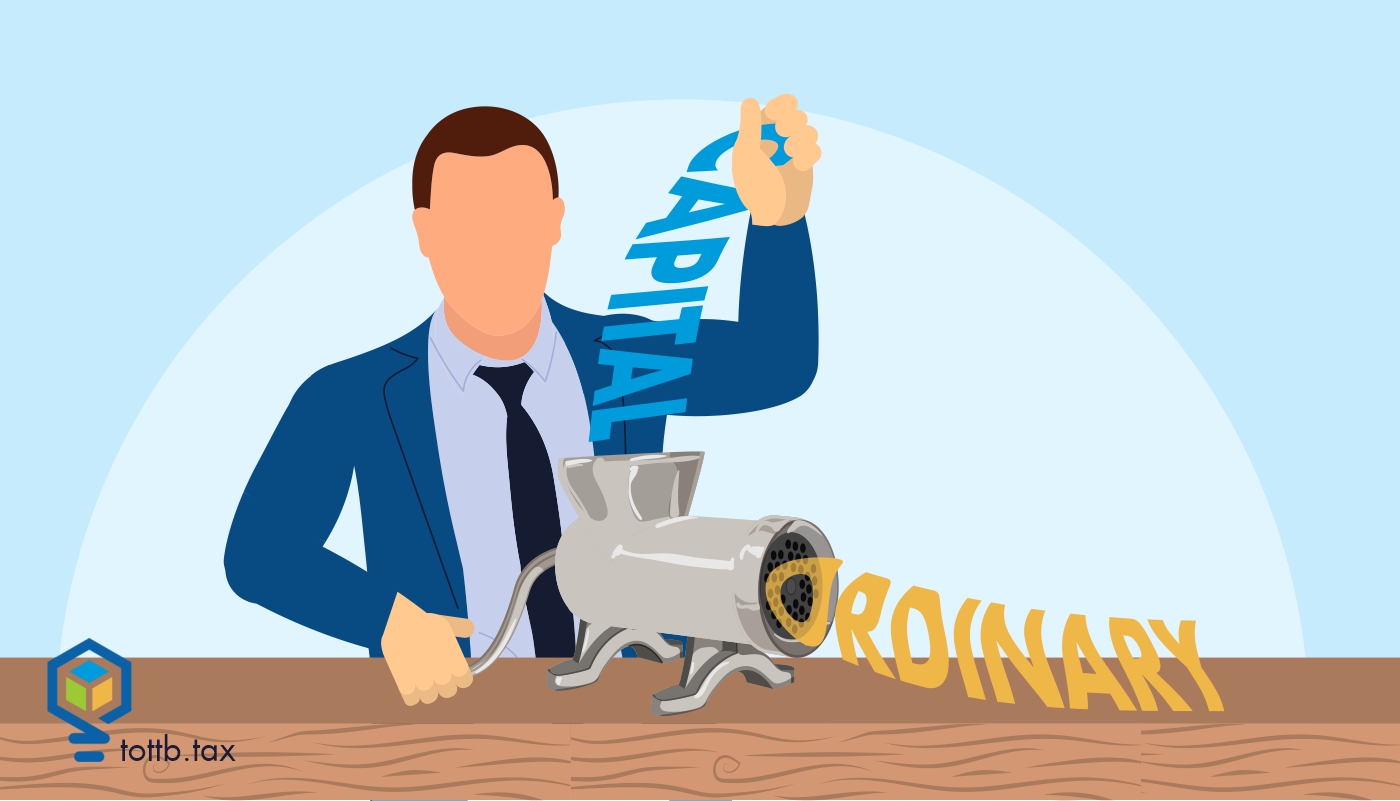CURRENT EDITION

This Is The Only Other Year-End Tax Tip Guide You Need
So as I did last year, I have reviewed a multitude of year-end tax tips articles. One of them is a real standout that you should be sure to check out. If you missed it, you should definitely roll back to the November 15 edition and go over Dominique Molina’s piece, which focuses on what you need to do sooner rather than later in response to OBBBA. It provides more detailed, relevant, actionable advice that you won’t see anywhere else than any of the multitude of pieces I have reviewed. As for the rest, I will give you a basic rundown of what I call the SOSO (same old, same old) and a few suggestions that stand out as different that I will get into a little more along with some thoughts of my own.
READ MOREFacts, Circumstances, and Forever Stamps
The price of a forever stamp increased from $0.58 to $0.63 on January 1, 2023. A tax pro posted this fact as a public service announcement on Facebook. Of course, tax pros being tax pros, someone chimed in, “Do I have to recognize a capital gain upon disposition of my forever stamp?” And of course, someone (me) felt obliged to answer, “It depends.” A direct message followed this bit of tax drollery on Twitter that says, “In theory, if I’m holding stamps as an investment, they would be a capital asset.” And so it begins…
Read MoreCrypto Charitable Deduction Compliance – Mission Impossible?
Reilly’s Fourth Law of Tax: “Execution isn’t everything, but it’s a lot” might be amended when it comes to charitable deduction of property, because there you have an area where execution is almost everything. It is also an area that dramatically illustrates the Seventh Law: “Read the instructions.” In January, we received guidance from the IRS on the reporting requirements for charitable contributions of crypto currency . If you have followed IRS guidance on crypto and know something about charitable donation reporting requirements, the result shouldn’t surprise you , but maybe it will. The most disturbing part of the story is that the IRS may be asking for something we can’t provide...
Read MoreTax Court Roundup – May 2023
As always, much has happened in the tax courts this past month; let's jump right in!
Read MoreGetting Maximum Value from Small Business Stock Losses
When an individual sells a stock for a loss, it is a capital loss, and Congress makes it difficult for individuals to use their capital losses. The tax law only allows capital losses to the extent of capital gains. If capital losses exceed capital gains, the individual can only use up to $3,000 per year against ordinary income ($1,500 if married filing separately). However, there is a way around this rule: Losses on Section 1244 stock are ordinary losses, and claiming this valuable tax benefit allows an individual to save thousands of dollars in tax in the year of sale compared to the standard capital loss treatment. Let’s review what qualifies as Section 1244 stock, what benefits a taxpayer can get from Section 1244 stock, and how to claim those benefits on a tax return.
Read MoreKey Lessons from 2022 Tax Rulings
This article does not summarize key rulings of 2022, but instead offers some key lessons and reminders from 2022 tax opinions as well as a few IRS rulings. If you want to read the ruling, see the citations and links. Takeaways from a few state tax rulings that have a lesson of relevance beyond the particular state are also included...
Read MoreHow Things Go Criminal
If you were to ask most taxpayers what they worry about when it comes to their tax returns, they might say an unexpectedly high tax liability or even a late penalty. Next to none will worry they are at risk for criminal prosecution. There is a sound reason for this. In the fiscal year ending September 30, 2021, taxpayers filed over 261,000,000 tax returns. During that same period, IRS Criminal Investigation (CI) initiated only 2,581 investigations—a paltry 0.00098% of all tax returns filed. While CI entanglements are not a common experience, there are still lessons to be learned from looking at how things can go awry. So what types of scenarios have resulted in criminal investigations by the IRS, and what can this teach the everyday taxpayer? First of all, working with an expert, such as a Certified Tax Planner, will help you better understand what is permissible by the IRS and reassure you that your returns are fraud-free. For a few tips on what not to do, read the cases below and review our key takeaways for each one.
Read MoreHome Sale Rules for Newlyweds and Significant Others
Question: A spouse didn’t meet the residence test when the home sold because they weren’t legally married for two years on the date of the house sale. You indicated, however, the spouse is eligible for the home exclusion because by the end of the year they were married for two years Answer: If you want to understand how getting married impacts your ability to take tax-free profit, we must look at two issues and pass two tests. To take the full 121 exclusion deduction amount ($250,000/$500,000), first you have to determine filing status. If you were married or an RDP as of December 31, 2022, even if you did not live with your spouse/RDP at the end of 2022, your filing status is either Married Filing Joint or Married Filing Separate. Either way, the IRS considers you married for tax purposes. Now that you’ve determined that the client’s filing status is married, the potential gain exclusion is $500,000 under Section 121. But there are two important tests to apply to see whether you can exclude the maximum of $500,000 or whether it is going to be less. To learn about these tests, read on.
Read More2023 Summer Education Series Event Calendar
We are so excited to announce the 2023 Summer Education Series! All summer long we will be bringing our loyal subscribers monthly webinars featuring some of the brightest minds in tax! Each webinar will feature our usual blend of high-quality education and entertainment and include continuing education credits for those who qualify. All of this is included in your regular subscription! Continue reading to see what we have in store...
Read MoreNOT A MEMBER YET?

SUBSCRIBE TO GET ALL OF OUR
GREAT ARTICLES AND RESOURCES!
CURRENT EDITION

This Is The Only Other Year-End Tax Tip Guide You Need
So as I did last year, I have reviewed a multitude of year-end tax tips articles. One of them is a real standout that you should be sure to check out. If you missed it, you should definitely roll back to the November 15 edition and go over Dominique Molina’s piece, which focuses on what you need to do sooner rather than later in response to OBBBA. It provides more detailed, relevant, actionable advice that you won’t see anywhere else than any of the multitude of pieces I have reviewed. As for the rest, I will give you a basic rundown of what I call the SOSO (same old, same old) and a few suggestions that stand out as different that I will get into a little more along with some thoughts of my own.

The Corporate Vault: How to Use a C Corporation to Stockpile Cash for the Future
When most people think about saving for the future, their minds jump to retirement accounts—401(k)s, IRAs, maybe even defined benefit plans. But business owners have another option that often goes overlooked: using a C corporation as a strategic savings vehicle. By leveraging the flat 21% corporate tax rate, smart income shifting, and careful timing of distributions, business owners can “stockpile” cash inside a corporation, building wealth for future use without the red tape of traditional retirement plans. Want to see how top tax strategists legally use C corporations as private retirement vaults while avoiding double taxation and IRS scrutiny? Continue reading to learn the blueprint.

When TikTok Tax Hacks Backfire: Helping Clients Misled by Social Media Scams
Jessica, a self-employed consultant, was thrilled when she found a viral TikTok video promising a “little-known” tax trick. The video claimed she could get a huge refund by claiming a special Fuel Tax Credit and even writing off her family’s beach vacation as a business expense. Following the advice, Jessica filed an amended tax return and waited eagerly for a windfall. A few months later, instead of a refund check, Jessica received a stern IRS notice. Her so-called credits were disallowed, her refund was denied, and she now faced penalties. Jessica isn’t alone. Every tax season, well-intentioned taxpayers get lured by false tax advice on social media, only to end up in trouble. As tax professionals, we often meet panicked clients like Jessica who need our help to untangle the mess.









